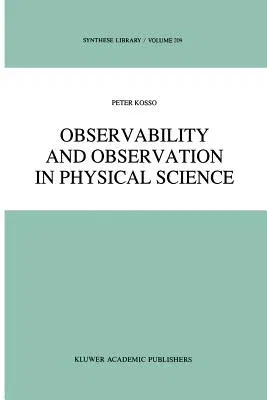Peter Kosso
(Author)Observability and Observation in Physical Science (Softcover Reprint of the Original 1st 1989)Paperback - Softcover Reprint of the Original 1st 1989, 14 October 2011

Qty
1
Turbo
Ships in 2 - 3 days
In Stock
Free Delivery
Cash on Delivery
15 Days
Free Returns
Secure Checkout
Part of Series
Synthese Library
Part of Series
Synthese Library (Paperback)
Print Length
166 pages
Language
English
Publisher
Springer
Date Published
14 Oct 2011
ISBN-10
9401075980
ISBN-13
9789401075985
Description
Product Details
Author:
Book Edition:
Softcover Reprint of the Original 1st 1989
Book Format:
Paperback
Country of Origin:
NL
Date Published:
14 October 2011
Dimensions:
22.86 x
15.24 x
0.97 cm
ISBN-10:
9401075980
ISBN-13:
9789401075985
Language:
English
Location:
Dordrecht
Pages:
166
Publisher:
Weight:
244.94 gm

